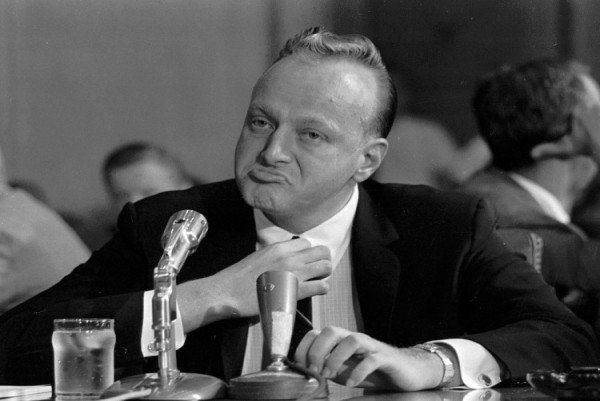I’m a sucker for a Martin Scorsese crime film. While I was on vacation and looking for something to watch in my downtime, I noticed the 1995 classic Casino streaming. I am a fan of the film and thought it was ripe for another viewing.
Working with Nicholas Pileggi and his nonfiction book Casino: Love and Honor in Las Vegas, Scorsese took the tale of Frank “Lefty” Rosenthal and the Stardust Resort and Casino and crafted his own version of the mob’s Las Vegas infiltration.
The film details the operations of Sam “Ace” Rothstein, a character based on Rosenthal, who oversaw the operations of the Tangiers Casino in Las Vegas. His relationships with various individuals are portrayed, and the film shows how those associations and his status with the mob breaks down over the years.
One specific scene, where Rothstein becomes aware that the FBI has wiretapped his and his associates’ phones, stuck out to me.
What is a wiretap?
When most hear “wiretap,” they might imagine a listening device the government puts on a suspect’s phone. That was often the case in the past, but in today’s world, the government need not even touch your phone to listen to your calls, so long as they have the proper authorization.
According to the American Bar Association, “[w]iretapping has existed for as long as oral communications have been transmitted over wires.” Before everything was digital, it was common for private detectives and law enforcement agents to physically connect to a phone by either splicing wires or employing a device attached to, or even inside, the phone. The practice was somewhat unregulated until Congress passed The Communications Act of 1934.
Surprisingly, that law made wiretapping illegal and outlawed the admission of wiretap evidence in courts. However, as decades passed, the proliferation of telephones and their use in furtherance of criminal activity increased exponentially. In light of the changing landscape of crime and law enforcement, Congress passed the federal Wiretap Act of 1968, which further developed the contours of wiretap law.
It lists specific criminal activity that must be present and articulated before a court authorizes a wiretap, although agents don’t have to turn a blind eye to other criminal conduct that they discover during the course of the calls. Moreover, the government must show that other investigative procedures have been tried and failed, or why they reasonably think other approaches would be too dangerous—or unlikely to succeed.
The events in Casino take place during the 1970s and 1980s, so the federal protections mentioned above would have been in effect.
Minimizing the invasion of privacy
One of those protections is referred to as “minimization,” and the film has a quick throwaway scene that describes the practice pretty well. Rothstein narrates how “if a phone is tapped, the feds can only listen in on the stuff involving crimes. So, on routine calls, they have to click off after a few minutes.”
As Rothstein explains this to the audience, two wives talk on the telephone about something innocuous. The scene cuts back to someone, presumably an FBI agent, listening in on the conversation and then dejectedly turning off what appears to be monitoring equipment. Rothstein and his associate then take the phones and quickly arrange a meeting to speak in person.
That attempt to evade the wire was successful, but it was hazardous. Minimization doesn’t require the listening agents to completely abandon a seemingly innocent call. To the contrary, the government is allowed to briefly return to the call at various intervals throughout its duration, to determine whether the call has at any time become relevant to the investigation.
Even with the federal law’s protections and regulations in place for decades, along with the associated case law generated, minimization is still subject to some level of discretion, not only on the part of the prosecution, but in regard to the court reviewing their conduct as well.
After all, the government need only make a reasonable effort to minimize the interception of conversations irrelevant to the predicate acts they’re investigating.
That takes me back to a murder case I tried a few years ago. It involved a massive amount of phone call evidence; not only were my client and many others in his social circle wiretapped, but he had been in custody for over a year pending trial due to a substantial bond in state court. My team and I were tasked with reviewing and analyzing countless hours of recorded calls.
Consequently, we were prepared for any phone evidence the prosecution could offer at trial. We had every call transcribed and organized by date. This gave me the ability to approach the judge preemptively any time the assistant district attorneys began to question their agents about a call. I had asked the court to order the prosecution to present me with a list of all the specific calls they anticipated offering, so I could address them all together beforehand in the absence of the jury. I was met with resistance, and the list was never required.
At one point, the prosecution started to lay a foundation that seemed too close to home, literally. When I asked to approach and was informed of the date of the call they were referencing, my associate and I realized the prosecutors were referring to a call my client had made to my office. It wasn’t a call between the two of us, but it was a call between my client and my staff.
I requested the court excuse the jury so I could make my record contemporaneously with my objection. I kept my professionalism and decorum as best I could, but my anger and surprise were on full display.
The sanctity of the attorney-client privilege is the bedrock of my profession and my life’s work. I was deeply offended in a way that I had never experienced in court before or since. I asked for a mistrial, and the prosecution ultimately announced they wouldn’t move forward with attempts to admit that call.
Ever since, I’ve had a bad taste in my mouth regarding the concept of “minimization” and the government’s idea of reasonableness in relation to it. Your mileage may vary.

Adam Banner
Adam R. Banner is the founder and lead attorney of the Oklahoma Legal Group, a criminal defense law firm in Oklahoma City. His practice focuses solely on state and federal criminal defense. He represents the accused against allegations of sex crimes, violent crimes, drug crimes and white-collar crimes.
The study of law isn’t for everyone, yet its practice and procedure seem to permeate pop culture at an increasing rate. This column is about the intersection of law and pop culture in an attempt to separate the real from the ridiculous.

